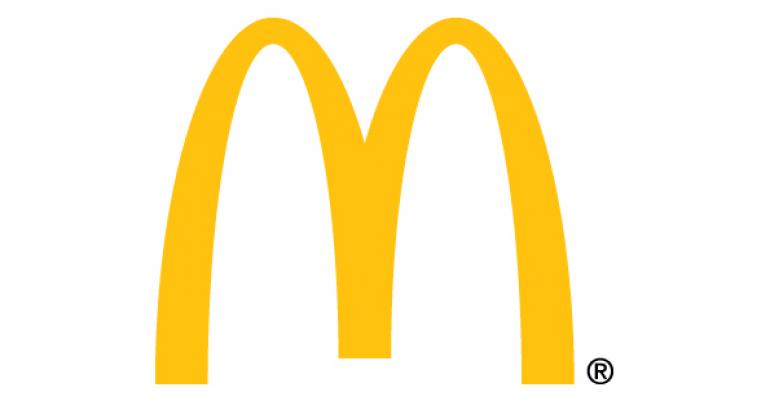McDonald’s Corp.’s November same-store sales fell 4.6 percent in the U.S. and 2.2 percent globally despite an overall brighter economic picture and lower gas prices.
Same-store sales in other major global segments also fell as the Oak Brook, Ill.-based quick-service operator struggles to regain momentum in different parts of the world.
McDonald’s said it expects its sales struggles to “significantly pressure company-operated and franchised margins.” In addition, the company said the strengthening U.S. dollar should cut profits by 7 cents to 9 cents per share in the fourth quarter.
“Today’s consumers increasingly demand more choice, convenience and value in their dining-out experience,” McDonald’s chief executive Don Thompson said in a statement. “We are working to bring the McDonald’s Experience of the Future [the chain’s revitalization initiative] to life for our customers to better deliver against these evolving expectations. Each of our geographic segments is focused on regaining business momentum by prioritizing initiatives to improve comparable sales performance in the near-term, while developing innovations to deliver sustained profitable growth.”
McDonald’s is finishing its toughest year in more than a decade. Global same-store sales have fallen 1.1 percent for the year, and in the U.S. — its home country and biggest market — they have declined 2.3 percent.
Those sales struggles have put considerable pressure on the company to make changes, and the November sales results will likely intensify that pressure. The November decline was worse than the 4.1-percent decrease in September, and the worst monthly figure for the chain in at least 11 years.
McDonald’s has made several executive and organizational changes at home intended to usher in change, including more local control of menu products and marketing strategies, naming Mike Andres president of McDonald’s USA, and changes in its domestic organizational structure.
The company is also expected to trim its menu amid concerns that its product line has become too bloated and difficult to operate.
McDonald’s blamed “strong competitive activity” for its U.S. struggles, not just from other quick-service chains like Burger King and Wendy’s, but from fast-casual competitors and even grocery and convenience stores that are adding prepared food offerings.
The results also came despite lower gas prices and higher employment, which has given the restaurant industry overall momentum late in the year. Industry same-store sales rose 1.5 percent in November, according to Black Box Intelligence.
In Europe, comps fell 2 percent during the month. McDonald’s said it is challenged across “most of the segment,” with negative results in France and Germany, and continued weak results in Russia amid a health scare there.
In the company’s APMEA segment, including Asia, the Pacific, the Middle East and Africa, same-store sales fell 4 percent. The biggest problem in that segment continues to be the supplier issue in Japan and China. A supplier in China was alleged to be repackaging expired food, which has led to steeply plunging sales in Asia for many western brands. That supplier problem is expected to hurt earnings by 7 cents to 10 cents per share.
McDonald’s said it is working on “brand recovery campaigns” in the markets affected by the scandal.
However, McDonald’s performed strongly in other countries, including Latin America and Canada, which helped make up for weakness in the rest of its system.
Correction: December 12, 2014 An earlier version of this story said that a supplier to western brands in China was found to be repackaging expired food. The charges are only allegations at this point.
Contact Jonathan Maze at [email protected].
Follow him on Twitter: @jonathanmaze





